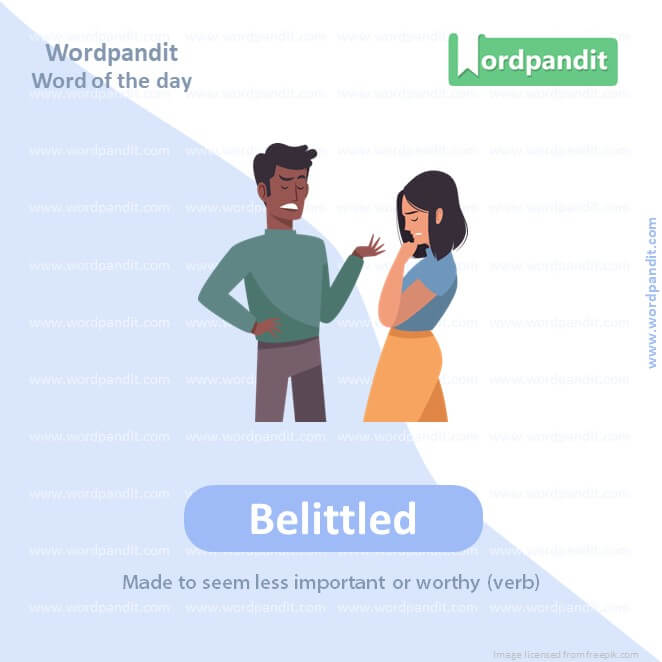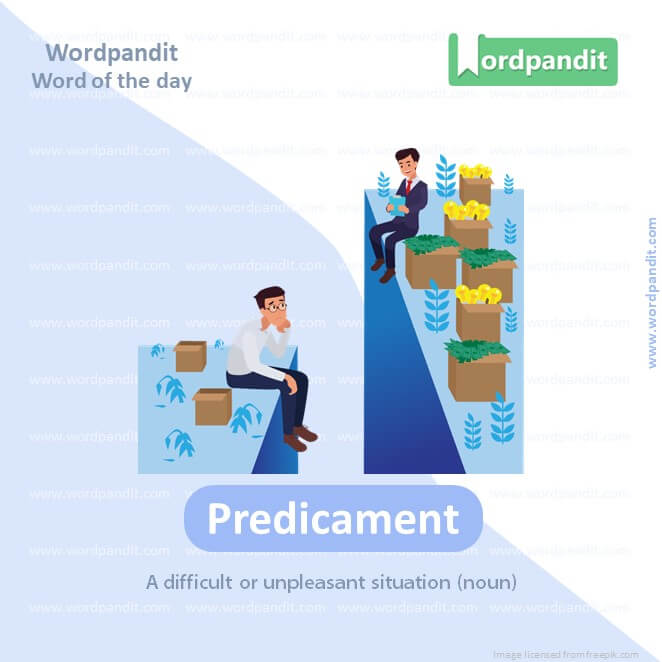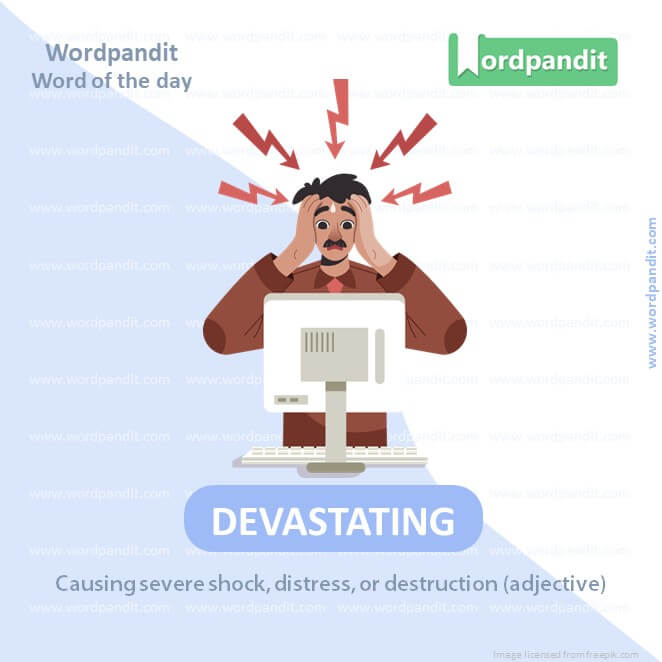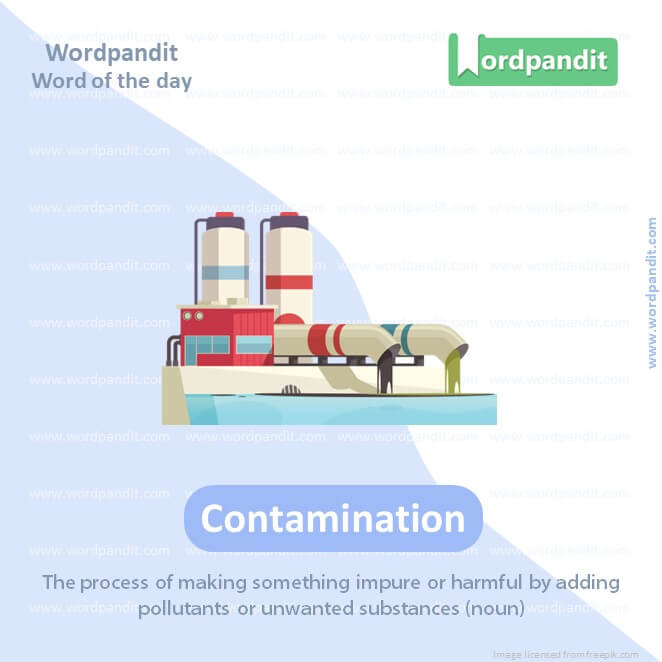Daily Vocabulary Words: List of Daily Used Words in Leading International Newspapers
Hi there. Welcome to this special section @ Wordpandit.
Our endeavour here is very simple: to highlight important daily vocabulary words, which you would come across in leading newspapers in the country. We have included the following newspapers in our selection:
• The New York Times
• The Washington Post
• Scientific American
• BBC
• The Guardian
• Psychology Today
• Wall Street Journal
• The Economist
We are putting in extensive work for developing your vocabulary. All you have got to do is be regular with this section and check out this post on a daily basis. This is your repository of words that are commonly used and essentially, we are posting a list of daily used words. Hence, this has significant practical application as it teaches you words that are used commonly in leading publications mentioned above.
Visit the website daily to learn words from leading international newspapers.
WORD-1: Animosity
CONTEXT: While Iran’s ideological animosity toward Israel runs deep, Tehran has on numerous occasions in the past hinted that, within a larger regional arrangement that doesn’t exclude it, Iran can live with whatever Israeli-Palestinian agreement the Palestinians themselves find acceptable.
SOURCE: New York Times
EXPLANATORY PARAGRAPH: Imagine feeling strong dislike or hostility towards someone, like when you’re very angry with a friend. That’s like “animosity.” It means a strong feeling of hostility or resentment.
MEANING: A strong feeling of hostility or resentment (noun).
PRONUNCIATION: an-uh-mos-i-tee
SYNONYMS: hostility, enmity, bitterness, antipathy, animus
USAGE EXAMPLES:
- There was a long history of animosity between the two rival families.
- Her words were filled with animosity towards her former boss.
- The animosity between the groups led to frequent conflicts.
- Despite their past animosity, they eventually reconciled.

WORD-2: Belittled
CONTEXT: His tactical successes in avoiding the worst outcomes of his policies should not be belittled.
SOURCE: New York Times
EXPLANATORY PARAGRAPH: Imagine someone making fun of you or saying mean things that make you feel small and unimportant. That’s like being “belittled.” It means to make someone or something seem less important or worthy.
MEANING: Made to seem less important or worthy (verb).
PRONUNCIATION: bih-lit-ld
SYNONYMS: demeaned, disparaged, degraded, diminished, mocked
USAGE EXAMPLES:
- She felt belittled by the constant criticism from her peers.
- His achievements were often belittled by others.
- The teacher never belittled students’ efforts but encouraged them to do better.
- Belittling others only shows insecurity and lack of empathy.

WORD-3: Evangelist
CONTEXT: I sat inside a raucous tent revival in West Texas, gripping my seat in fear that a traveling evangelist would accuse me of killing my father.
SOURCE: New York Times
EXPLANATORY PARAGRAPH: Imagine someone who is very passionate about a cause or belief and wants to convince others to join them. That’s like an “evangelist.” It refers to a person who enthusiastically promotes or advocates for a particular cause, idea, or belief.
MEANING: A person who talks about and promotes something with great
enthusiasm, often related to religion (noun).
PRONUNCIATION: ee-van-juh-list
SYNONYMS: advocate, promoter, supporter, proponent, champion
USAGE EXAMPLES:
- She was known as an evangelist for environmental conservation.
- The political party hired evangelists to rally support for their candidate.
- The tech evangelist passionately explained the benefits of the new software.
- The evangelist’s persuasive speeches inspired many to join the cause.

WORD-4: Predicament
CONTEXT: Nothing about his predicament made sense to our family at the time. He was 38, a nonsmoker and nondrinker, with no history of cancer in his family.
SOURCE: New York Times
EXPLANATORY PARAGRAPH: Imagine being in a difficult situation where you don’t know what to do or how to solve the problem. That’s like a “predicament.” It refers to a difficult, unpleasant, or challenging situation with no easy solution.
MEANING: A difficult or unpleasant situation (noun).
PRONUNCIATION: pri-dik-uh-muhnt
SYNONYMS: dilemma, quandary, difficulty, problem, crisis
USAGE EXAMPLES:
- He found himself in a predicament when he lost his wallet while traveling.
- The company faced a predicament due to declining sales and rising costs.
- Getting caught in a lie put him in a predicament with his family.
- The predicament required creative thinking to find a resolution.

WORD-5: Devastating
CONTEXT: it validated what I’d long suspected, that exposure to these chemicals can be devastating.
SOURCE: New York Times
EXPLANATORY PARAGRAPH: Imagine something causing immense damage, destruction, or emotional pain. That’s like something being “devastating.” It means causing severe harm or destruction, or having a profound emotional impact.
MEANING: Causing severe harm or destruction; having a profound emotional impact (adjective).
PRONUNCIATION: de-vas-tey-ting
SYNONYMS: destructive, ruinous, catastrophic, heartbreaking, overwhelming
USAGE EXAMPLES:
- The earthquake had devastating effects on the city.
- Losing her job was a devastating blow to her confidence.
- The news of the accident was devastating to the entire community.
- The devastating impact of climate change is evident worldwide.
WORD-6: Repellent
CONTEXT: In the 1930s and ’40s, manufacturing companies like DuPont and 3M began developing these substances for use as repellent in nonstick items including Teflon pans, Scotchgard, and firefighting foams.
SOURCE: New York Times
EXPLANATORY PARAGRAPH: Imagine something that makes you want to move away or avoid it because it’s unpleasant or offensive. That’s like something being “repellent.” It means causing disgust or aversion, making people want to avoid or reject it.
MEANING: Causing disgust or aversion; making people want to avoid or reject (adjective).
PRONUNCIATION: ri-pel-uhnt
SYNONYMS: repulsive, disgusting, offensive, revolting, abhorrent
USAGE EXAMPLES:
- The smell of the garbage was so repellent that they had to leave.
- His behavior towards others was often repellent and rude.
- The movie’s violent scenes were repellent to some viewers.
- The taste of the medicine was so repellent that she couldn’t swallow it.

WORD-7: Contamination
CONTEXT: Firefighting foams have been a major source of PFAS contamination since their development in the 1960s.
SOURCE: New York Times
EXPLANATORY PARAGRAPH: Imagine something clean getting mixed with something dirty or harmful, making it impure. That’s like “contamination.” It refers to the process of making something impure or harmful by adding pollutants or unwanted substances.
MEANING: The process of making something impure or harmful by adding pollutants or unwanted substances (noun).
PRONUNCIATION: kuhn-tam-uh-ney-shuhn
SYNONYMS: pollution, adulteration, defilement, tainting, infection
USAGE EXAMPLES:
- The contamination of the river water by industrial waste harmed aquatic life.
- Contamination of the food supply with bacteria led to a health crisis.
- The contamination of the air with pollutants contributed to respiratory problems.
- Efforts were made to prevent contamination of the environment by hazardous materials.
WORD-8: Straining
CONTEXT: Mandates should identify the historical sources of pollution to hold industries accountable and avoid further straining the communities exposed to PFAS with the additional cost of their cleanup.
SOURCE: New York Times
EXPLANATORY PARAGRAPH: Imagine trying very hard to lift something heavy, and it feels like you’re pushing yourself to the limit. That’s like “straining.” It refers to exerting effort or force beyond normal limits, often causing stress or tension.
MEANING: Exerting effort or force beyond normal limits, often causing stress or tension (verb).
PRONUNCIATION: streyn-ing
SYNONYMS: exertion, effort, stress, pressure, tension
USAGE EXAMPLES:
- He strained his muscles trying to lift the heavy furniture.
- The strained relationship between the two countries led to diplomatic tensions.
- She strained her voice from shouting too loudly.
- Straining his eyes to read in dim light caused headaches.
WORD-9: Oblivion
CONTEXT: I would not have them blindly searching for answers that first manifest, as so often quests through oblivion do, in blaming one’s self.
SOURCE: New York Times
EXPLANATORY PARAGRAPH: Imagine forgetting everything about something or someone, as if it never existed. That’s like “oblivion.” It refers to a state of being completely forgotten, ignored, or uninformed about something.
MEANING: A state of being completely forgotten, ignored, or uninformed about something (noun).
PRONUNCIATION: uh-bliv-ee-uhn
SYNONYMS: forgetfulness, unawareness, ignorance, obscurity, anonymity
USAGE EXAMPLES:
- The old traditions fell into oblivion as new customs emerged.
- He faded into oblivion after retiring from public life.
- The once-popular band faded into oblivion after their last album.
- The historical event was nearly forgotten, slipping into oblivion over time.
WORD-10: Obscures
CONTEXT: Of course, weighing the legality of camping obscures the real issue, which is how, in a nation of roughly 650,000 unhoused people, the federal, state and local governments can make sure there are enough beds for people to sleep in.
SOURCE: New York Times
EXPLANATORY PARAGRAPH: Imagine trying to see something clearly, but it’s hidden in shadows or covered by something else. That’s like something being “obscured.” It means to make something unclear, difficult to understand, or hard to see.
MEANING: Making something unclear, difficult to understand, or hard to see (verb).
PRONUNCIATION: uhb-skyoorz
SYNONYMS: conceals, hides, masks, veils, shrouds
USAGE EXAMPLES:
- The fog obscured the view of the mountains from the valley.
- His emotions were obscured by his calm exterior.
- The complex language used in the article obscured its main points.
- The details of the contract were deliberately obscured to confuse the reader.







